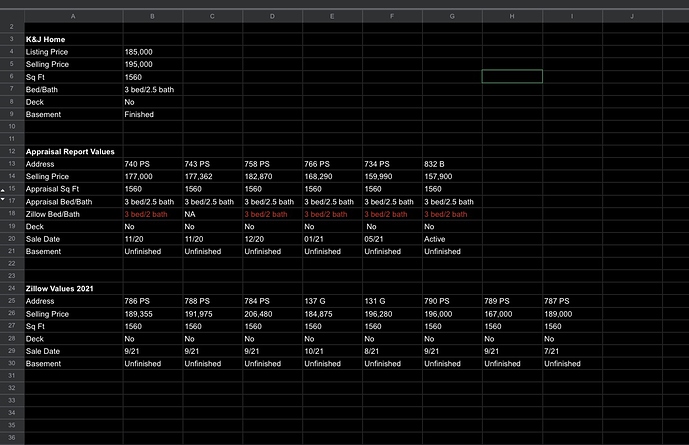Your mileage will definitely vary on the Assessor’s willingness to help, depending on the quality of your town officials and… how much work they want to do. I’ll stop there because I still work tangentially with the Assessor’s office and need my friends in the business world 
By MA law the published assessed values have to be within 10% range of that year’s FMV; these values are audited by the DOR every year. Assessors must submit their yearly town-wide assessments, in spreadsheet form, to the DOR and it must be approved by the DOR before they can finalize the values and establish their tax rate. Every five years the DOR goes through your Municipalities’ records and audits everything from property values to whether or not the Assessor is handling appeals in a timely fashion.
It is probably one of the more onerous departments to work for in a municipality sense. You(g) won’t get away with fuddling numbers or having any incorrect assessments for very long, if at all. The DOR will catch you instantly.
Something that many residents aren’t aware of is that the year’s published values are reflective of last year’s sales – in the simplest explanation possible, the valuation on which you are taxed is always lagging a year behind your present year. MA is a good example - our house values have been steadily rising the last five years, but in the last six months certain locations have almost doubled their value --that won’t show on your Assessed Value (which you are taxed on) until next year (2022).
A slight tangent – (not directed at you FrugalAnnie) Assessors can’t just set a value and declare that is what the value is based on their intuition, although this is the perception of many residents and taxpayers. Municipalities use software to generate the values based on a universal cost manual built into the software – the cost manuals are revised, nitpicked, and edited every year, and these software programs are exorbitantly expensive and constantly upgraded. In some parts of the country Assessors may still be using manual cost manuals, but these are only in very small counties with sparse human settlement. If you are in a town or a city with more than 1,000 homes, your values are generated by a cost manual which takes in all features of your home (house dimensions, rooms, location, acreage, any functional obsolescence on the home like a nearby airport or train station) and generating an assessed value from that information – which is why it is imperative to go to the town hall and get your ‘Property Record Card’ (also known as: Field Card, Assessor’s Card, Record Card) and make sure the information the Assessor has is correct because the values are pulled in from those known figures.
A second side-track, but germane to the topic of Assessor records being outdated or incorrect: I work for one of the wealthiest towns in MA. Many of these homes are valued on the “low end” (in the $1mill sense versus 3mill sense) because the home owner has never let the Assessor inspect the property. By law, you are not required to let an Assessor into your home. When that happens, the Assessor has to pull from external condition and original house design plans only - so that is another common reason here that there is a disparity in the values between an Assessor and an Appraiser.
We actually had a really interesting case a few years ago - home owner came in for an abatement on a $1 million home and said our records were incorrect. The last time they had let someone from the Assessor’s office on the property was in 1978… In the end they were right, our records were incorrect – they’d built several additions without a permit and their home was actually worth nearly twice what it was assessed.
From the outside looking in, I can say it’s been my professional experience that appraisers are not always genuine in their assessments - I prefer to use municipality-trained officials over private appraisers.


 )
)


